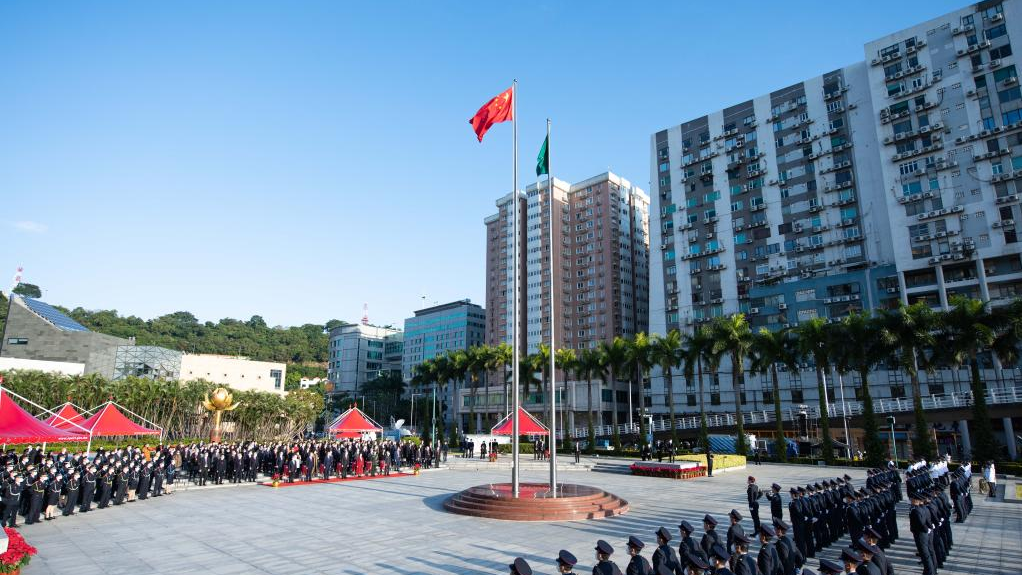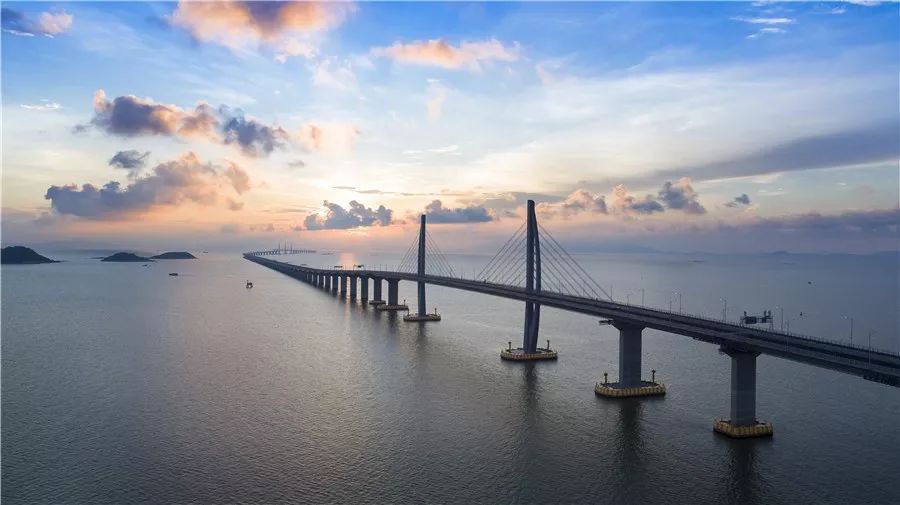
A flag-raising ceremony marking the 23rd anniversary of Macao's return to the motherland is held at the Golden Lotus Square in Macao, south China, December 20, 2022. /Xinhua
A flag-raising ceremony marking the 23rd anniversary of Macao's return to the motherland is held at the Golden Lotus Square in Macao, south China, December 20, 2022. /Xinhua
Editor's note: Alexandr Svetlicinii is Associate Professor of Global Legal Studies at the University of Macau, where he also serves as program coordinator for the Master of Law in International Business Law. The article reflects the author's opinions, and not necessarily the views of CGTN.
On March 31, Macao marks the 30th anniversary of its Basic Law, which was passed by the National People's Congress (NPC) in Beijing on March 31, 1993. The Basic Law of the Macao SAR entered into force on December 20, 1999, when the People's Republic of China resumed the exercise of its sovereignty over Macao, which received the status of a Special Administrative Region (SAR). This note highlights the role of the Macao Basic Law in the practice of the "One Country, Two Systems" principle, allowing the region to take advantage of multiple development opportunities.
The "One Country, Two Systems" arrangement essentially includes two inter-connected elements: the unity between the Chinese mainland and the two SARs ("one country" element) and the autonomy of the SARs in organizing their political, economic and social structures ("two systems" element). It is grounded in the Constitution, which authorized the NPC to regulate the organization of the SARs by law, such as the Macao Basic Law. The example of the Macao SAR demonstrates how a combination of the two elements contributed to the stability and prosperity of the region.
The Basic Law of the Macao SAR has guaranteed to the region a high degree of autonomy in using its executive, legislative and judicial powers. It allowed Macao to preserve its low tax status and significantly expand the revenues from the gaming and tourism industries. Being a distinct customs territory, Macao has been continuously keeping an open door to the world by implementing free trade policy without foreign exchange controls thus safeguarding free movement of goods, intangible assets and capital.
At the same time, through the Closer Economic Partnership Arrangement concluded between Macao and Chinese mainland in 2003, the region's enterprises have benefited from the preferential access to the Chinese mainland's markets for the purposes of trade and investment. The unprecedented economic growth allowed the Macao SAR to increase its GDP from 51.87 billion patacas ($6.43 billion) in 1999 to 444.7 billion patacas ($55.12 billion) in 2018.

The Hong Kong-Zhuhai-Macao Bridge. /Xinhua
The Hong Kong-Zhuhai-Macao Bridge. /Xinhua
The Macao SAR exercised under the guidance of the Basic Law, also allowed the regional authorities to fully benefit from the development opportunities created by the economic policies of the central government. In 2015, the Macao SAR was attributed a special role within the Belt and Road Initiative. In 2017, in the presence of the Chinese President Xi Jinping, Macao officials inked the Framework Agreement on Deepening Guangdong-Hong Kong-Macao Cooperation in the Development of the Bay Area (GBA).
The 2019 GBA Outline Development Plan proposed to promote investment facilitation by further lifting or relaxing investor restrictions in relation to Macao businesses and professionals investing or doing business on the Chinese mainland. The 14th Five-Year Plan (2021-2025) reaffirmed the Macao SAR's integration into the overall development of the country referring to the complementarity of advantages between the Macao SAR and the Chinese mainland, to ensure their coordinated development.
In 2021, while the battle with COVID-19 was still ongoing, the central government has reaffirmed its support to economic diversification of Macao and released the detailed Master Plan of the Development of the Guangdong-Macao Intensive Cooperation Zone in Hengqin. It provided for a unique system of shared responsibilities between the Macao SAR and Guangdong Province whereby the Hengqin Cooperation Zone will be managed by the administrative committee consisting of public officials from the Macao SAR and Guangdong Province.
The above examples demonstrate that the distinct legal system of the Macao SAR based on the Basic Law allowed the region to prosper under the "One Country, Two Systems" principle by maintaining regulatory and executive autonomy while fostering economic integration with the Chinese mainland.
(If you want to contribute and have specific expertise, please contact us at opinions@cgtn.com. Follow @thouse_opinions on Twitter to discover the latest commentaries in the CGTN Opinion Section.)